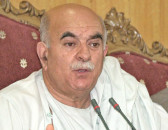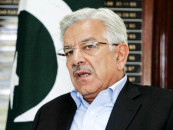Keeping the faith
A new movement for a contemporary interpretation of the Qur’an gathers adherents and condemnation in equal measure.

The event would not be unusual except for one small detail: a woman scholar is to lead the prayers. Amina Wadud, is an American Muslim theologian and (now retired) professor of Islamic Studies. She is the author of the groundbreaking book Qur’an and Woman: Rereading the Sacred Text from a Woman’s Perspective and a leading voice in what is coming to be known as ‘Islamic feminism’. A classically trained scholar, she shot into the media spotlight in 2005 when she led mixed gender prayers in New York leading to death threats and condemnation from conservative Muslims worldwide. There were protests in 2008 where she led prayers in Oxford but on this June day the event passes by peacefully.
Following a brief khutba, Wadud begins the namaz. In the mixed congregation, a group of four women, used to praying behind men, are encouraged to move forward and stand alongside them. Old habits die hard.
Afterwards, as we sip tea, a young student speaks to Amina Wadud about what an emotional experience the namaz was for her, about the isolation in which she practices her faith, and her eyes fill up with tears. “I am very confident that things are changing,” Wadud assures her and everyone nods with hope.
For the last decade, the dominant voice of Muslims in Britain has been the voice of the conservative, and at times extremist Muslims. Religious and so-called ‘community’ leaders who are male, socially conservative and orthodox in religious beliefs, have spoken as representatives of the ‘Muslim community’. In the last few years however a growing number of British Muslims are rejecting received wisdom, re-engaging with their faith, and re-examining the Quran from a contemporary, more culturally relevant context.
Published last month, Reading the Quran, a new book by writer and broadcaster Ziauddin Sardar, is the most recent addition to a growing scholarship which seeks to understand and derive contemporary relevance from the Holy Text. As well as analysing some individual verses of the Quran, Sardar examines themes that run through the Text and seeks answers to contemporary issues such as sex and society, the veil and polygamy and domestic violence.
“The main point I am making in the book,” says Sardar, “is that you cannot take a verse from the Quran and say ‘this is what it means’, out of context.” According to Sardar there are at least three kinds of context a reader needs to be aware of. The first is the historical context in which the verse was revealed “to see whether that verse has universal validity or whether it was specific to the context in which it was revealed.”
Second is the social context of the text. “The Quran was revealed to a specific people in a specific part of the world during a specific period of history,” he explains. “The social context of the society is very important. Verses concerning the role of women for example, cannot be interpreted out of that social context.”
Finally, there is the context of the person reading the text. It is essential, he argues, to keep in mind that you bring your own self to the text. The reader’s ethics, outlook and personal context changes his or her approach to the text.
The classical scholars brought their own context — their social and historical context as well as the state of knowledge at the time — to their interpretations, he argues. While their understanding is limited to their time it has been turned into a universal interpretation.
While not a classical scholar himself, Sardar draws upon the works of classically trained scholars and forcefully argues for each generation of Muslims to revisit the Text to discover its meaning anew. But can we revisit even that which is clearly written, given that it is the Word of God?
“If, as we believe, the Quran is the word of God,” he responds, “then you as a finite person interacting with the Infinite cannot have a complete understanding of the Infinite — you can only keep going back to the Infinite to learn more and more.”
Amina Wadud is one of the scholars upon whose works Sardar draws. In her latest book Inside the Gender Jihad she argues that the Quran contains certain overriding goals or ‘maqasid’ such as justice and equality and that we may reject what seem to be literal meanings if they go against one of the maqasid of the Quran. The Holy Book, she says, was revealed in a patriarchal society but has a “revolutionary and egalitarian trajectory” that must be followed through in every age.
A weekend conference in London drew Wadud and other renowned Islamic scholars, including the influential author Dr Khaled Abu Al Fadl, Professor of Islamic law at UCLA together with British scholars to discuss gender and Islam. The group organising the conference, Inspire, is one of several new women’s groups and consultancies promoting liberal Muslim values.
The last few years have also seen older organisations, such as the Muslim Institute and the Association of British Muslims, being revamped. Both of these are now clearly articulating bold, liberal interpretations of Islam.
For example, an answer to a question posted on the AOBM site regarding this phenomenon reads, “We should study and reflect as much as we are able...and not become overly reliant upon any particular scholars or groups. To err is human and the scholars are human. Each of these scholars also has a cultural background and has studied in particular cultural environments which may also affect their understanding of Islam.” The Muslim Institute is planning a quarterly magazine of ‘groundbreaking thinking on Islam’ called Critical Muslim.
No doubt it will take time for these ideas to trickle down to the streets. Yasmin Ishaq, one of the few women in the country to sit on a mosque committee is from a conservative Pakistani Muslim community in Rotherham. Impressed and excited by the ideas she heard at the Gender and Islam conference she was uncertain how much of it would directly inform her work. “We couldn’t take this straight back to the people at home,” she says. “It will have to be baby steps.”
The distance that needs to be crossed is illustrated by an incident in March this year when a khateeb at a conservative London mosque said in his Friday khutba that evolution was compatible with the Quran. All hell broke loose amongst the congregation as a vocal group declared him murtad (apostate), his leadership in prayers invalid, and demanded his dismissal. Even the mosque committee was split. The khateeb Dr Usama Hasan, himself an academic and contributor to national newspapers, retracted his statements and voluntarily suspended his role in leading Friday prayers.
“There is a lot of interest these days in Muslim scholarship and contextualisation of Islam,” says Dr Hasan, who continues to live under extra security arrangements, “but the mainstream is still dominated by literalist interpretations. What we are experiencing today is Islam’s reformation but it may take another 50 years before we see the change on the streets.”
Published in The Express Tribune, Sunday Magazine, August 21st, 2011.



















COMMENTS
Comments are moderated and generally will be posted if they are on-topic and not abusive.
For more information, please see our Comments FAQ